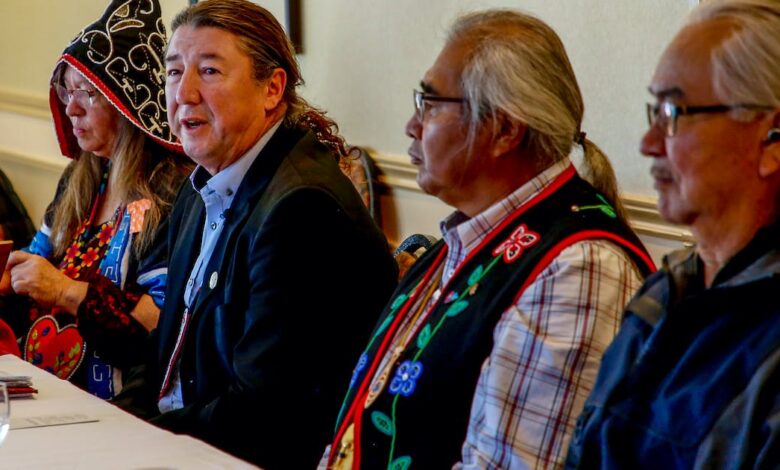Mi’kmaw attorney Paul Prosper named Senator for Nova Scotia

Paul Prosper, a Mi’kmaw attorney with more than 25 years of experience dealing with Indigenous legal issues, has been appointed as an independent senator for Nova Scotia.
Prosper was named in the announcement by the federal government as a lifelong advocate for the rights of indigenous peoples, including in his role as chief of the Paqtnkek (Afton) Mi’kmaw Nation, about 15 miles east of Antigonish, and as the Meeting of First Nations Regional Chief for Newfoundland and Nova Scotia.
Prosper served on several boards and committees, including the boards of the Atlantic Policy Congress of First Nations Chiefs Secretariat, the Atlantic First Nations Water Authority, and Mi’kmaw Kina’matnewey, as well as the Eastern Door L’nuk Lawyers Group, Ta’n Etli-tpi’tmk Association and the AFN Chiefs Committee on Child and Family Services.
From 2010 to 2013, he taught Mi’kmaq governance and Aboriginal and treaty rights at Cape Breton University.
In 2020, Prosper was inducted as a member of the Bertha Wilson Honor Society at Dalhousie University Schulich School of Law. He was also named wika’palultimk (counselor) for the L’nuk People by the Eastern Door L’nuk Lawyers Group.
Prosper holds a bachelor’s degree in law from Dalhousie University and a bachelor’s degree in arts (cum laude) from Cape Breton University.
Judy White, a Mi’kmaw from Flat Bay Band in Newfoundland and Labrador, was also appointed as an independent senator.
“Paul Prosper and Judy White have devoted their careers to advancing the rights of Indigenous peoples, and I know they will be important voices for their communities, their regions and all Canadians in the Senate,” Prime Minister Justin Trudeau said in a new statement. release. .
“I am delighted to welcome them as the newest independent senators to Parliament and look forward to continuing to work with all senators to build a better future for all.”
According to the release, new senators are recommended by an independent nomination advisory board and elected using a merit-based process open to all Canadians. Introduced in 2016, this process aims to ensure that senators are independent, reflect Canada’s diversity and are able to address a wide range of challenges and opportunities facing the country.
Under the Constitution, the Governor General appoints individuals to the Senate. By convention, senators are appointed on the advice of the prime minister.
Once appointed, new senators join their Ottawa counterparts to research and revise legislation, examine national issues, and represent regional, state, territorial, and minority interests.



